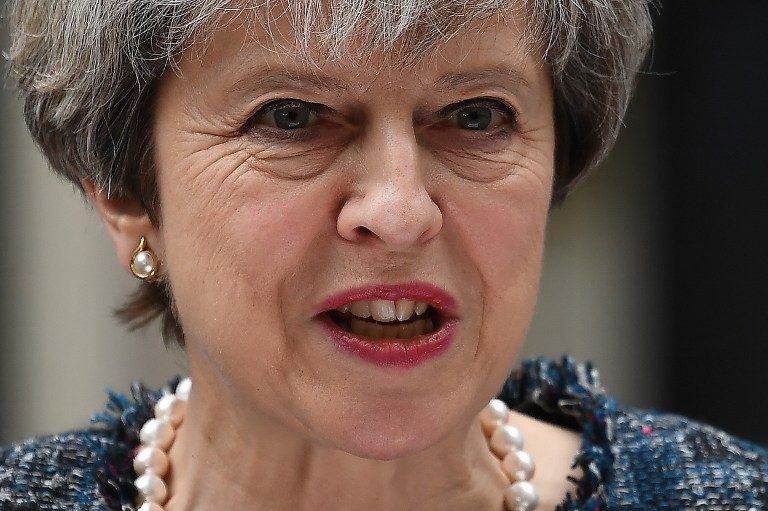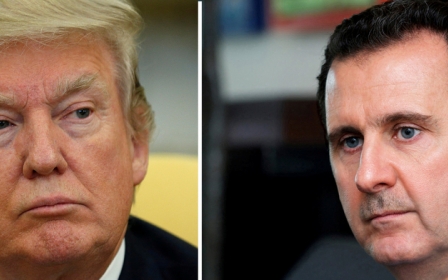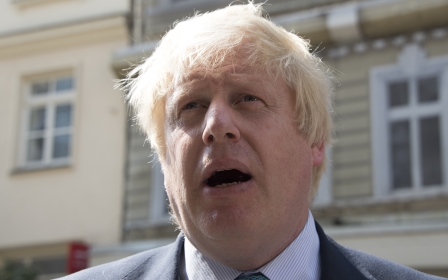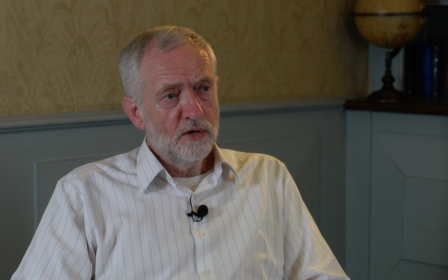British government mulls post-election vote on war against Assad

The British government could expand its military role in Syria should the Conservative party win a large majority in the upcoming general election, it has been reported.
Though the UK is already engaged in Syria and Iraq as part of the US-backed coalition against the Islamic State group, Theresa May wants further backing to join air strikes against the forces of Syrian leader Bashar al-Assad in the event of another chemical attack on rebels, according to a Whitehall source quoted in the Guardian.
In a surprise intervention last month, US President Donald Trump ordered a strike against a Syrian airbase after the alleged use of Sarin gas against rebels in Khan Sheikhoun in Idlib province, Northern Syria.
But soon after the deadly attack, Downing Street downplayed any plans for a military response.
Assad has denied responsibility for the attack and called it a “fabrication” but the UK along with other allies hold him responsible and have called for him to leave office.
Last week UK Foreign Secretary Boris Johnson said that government could act without parliamentary approval.
"I think it will be very difficult if the United States has a proposal to have some sort of action in response to a chemical weapons attack, and if they come to us and ask for our support, whether it's with submarine-based cruise missiles in the (Mediterranean), or whatever it happens to be, as was the case back in 2013, it would be in my view – and I know this is also the view of the prime minister – it would be very difficult for us to say no," he said in an interview on BBC’s Today programme.
Securing a large majority at the 8 June poll would help prevent a repeat of the parliamentary no vote May's predecessor David Cameron endured as he attempted to take Britain to war against Assad after a chemical attack killed hundreds of civilians in Eastern Ghouta in 2013.
Defence has become an important battleground with just over 30 days to go before the UK general election.
Yesterday the Conservative party released a “tax bombshell” an image Labour of leader Jeremy Corbyn and a bomb with the slogan: “No bombs for our army, one big bombshell for your family.”
Corbyn has continually opposed military action against Assad and has instead called for a political settlement to resolve the conflict. Last month he said, the American airstrike "risks escalating the war in Syria still further" and added: "The British government should urge restraint on the Trump administration and throw its weight behind peace negotiations and a comprehensive political settlement."
NGO Human Rights Watch has claimed that Syrian government forces also used deadly nerve gas in three other recent attacks.
Assad's forces are also stepping up chlorine gas attacks and have begun using surface-fired rockets filled with chlorine in fighting near Damascus, the US-based rights group said in a new report.
'The government's use of nerve agents is a deadly escalation - and part of a clear pattern,' said Kenneth Roth, Human Rights Watch's executive director.
"In the last six months, the government has used warplanes, helicopters, and ground forces to deliver chlorine and sarin in Damascus, Hama, Idlib and Aleppo.
That's widespread and systematic use of chemical weapons," he said.
New MEE newsletter: Jerusalem Dispatch
Sign up to get the latest insights and analysis on Israel-Palestine, alongside Turkey Unpacked and other MEE newsletters
Middle East Eye delivers independent and unrivalled coverage and analysis of the Middle East, North Africa and beyond. To learn more about republishing this content and the associated fees, please fill out this form. More about MEE can be found here.




